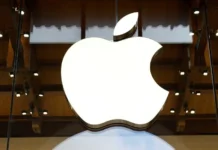The debate over artificial intelligence in music is intensifying as musicians, consumers, and industry stakeholders grapple with its growing influence. According to the IMS Business Report 2025, a staggering 60 million people used AI tools to make music in 2024, signaling a fundamental shift in music production.
While AI’s role in automating processes such as A&R, sound mastering, and royalty tracking is celebrated in some circles, concerns are mounting about its impact on originality, authenticity, and artist rights.
Mark Mulligan of MIDiA Research, who authored the report, said AI will reshape the music industry “in ways many don’t expect,” including the rise of “best fit music” tailored for algorithmic playlists rather than artistic expression.
This trend has alarmed creators and fans alike. A UK-wide survey by the BPI and AudienceNet revealed that 81.5% of respondents want AI-generated music clearly labelled, while over 80% value human-made music more. Additionally, 78.5% oppose AI training on artist vocals or works without permission.
High-profile musicians, including composer Max Richter, have called for urgent regulatory action. “Training AI on copyrighted music is unfair and unworkable,” Richter told UK lawmakers earlier this year.
Meanwhile, Deezer reports that 10,000 AI-generated tracks are uploaded daily, now accounting for 10% of its new content.
Some developments border on the surreal: a recent experiment using cells from avant-garde composer Alvin Lucier produced music from a lab-grown ‘brain,’ blurring the lines between art, science, and ethics.



















